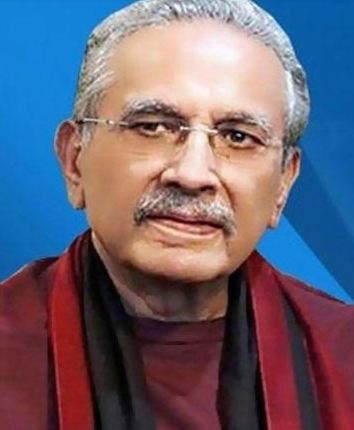ISLAMABAD, SEPT 25 /DNA/ – Former President of the Islamabad Chamber of Commerce and Industry (ICCI), Dr. Shahid Rasheed Butt, said on Wednesday that mega corruption and incompetence in the energy sector pose a more significant threat to the country than terrorism.
He said the energy sector is ruining the economy and the public while bankrupting the country, but meaningful reforms to save Pakistan remain a far cry.
He added that a critical factor in our industrial collapse is the element of mega corruption in the energy sector by the ruling elite and their blue-eyed bureaucrats.
In a statement released today, Shahid Rasheed Butt said, “We are blessed with a potential of millions of megawatts of clean electricity because we have many sources, including the fifth largest irrigation network in the world. However, only a small portion of this resource has been tapped.”
In 1984, hydroelectric power made up about 60% of our energy. Because of corruption at the top, it has dropped to less than 30%. Most of our energy comes from expensive oil and LNG we import.
He said the devastation started in 1994, when a policy let independent power producers (IPPs) bring in old, low-efficiency power plants with the promise of guaranteed government profits in dollar terms, no matter how much they cost.
The Rental Power Plants tell an even more shocking story. The prices these thermal power plants charged the government ranged from a ridiculously low Rs25 per unit to as much as Rs50 per unit because the agreements were based on capacity and not actual output.
At that time, Shahid Rasheed Butt said the cost of making hydroelectric power ranged from Rs1.18 to Rs4 per unit, while the cost of producing energy from coal was around Rs7 per unit. However, Wapda was not allowed to build its power plants. Instead, old plants were brought in from other countries.
He noted that about 50,000 MW of energy could be produced in the triangle of Kati Bander, Gharo, and Hyderabad in Sindh and along the coast of Baluchistan. This vast potential is still mostly untapped. India and China make their wind turbines, and we should do the same. This is a great way to get affordable energy, but the elite seems uninterested.
It has been proven that Pakistan has 579 million tonnes of coal deposits. However, the country is thought to have 186 billion tonnes more. He said that these have been mostly overlooked.
Much of our energy comes from expensive oil and gas that we have to import, which uses up much of our much-needed foreign exchange savings. Under the “take or pay” deal, the government agreed to take on all risks, even if the plants did not work as they should have.
The government still pays millions of dollars to power plants that are not being used, which raises our power rates and slows down industry growth.
In February 2016, Pakistan signed a 15-year Long-Term Sales Agreement (LTSA) with Qatar for LNG at 13.35% of the Brent price, which proved to be another wrong move.
There are many such events when national interests were compromised for personal gains, but it is inevitable that we can’t get ahead without cheap and stable energy. For our businesses to compete with those in Bangladesh, India, and Vietnam, energy should not exceed 9 cents per unit.

















